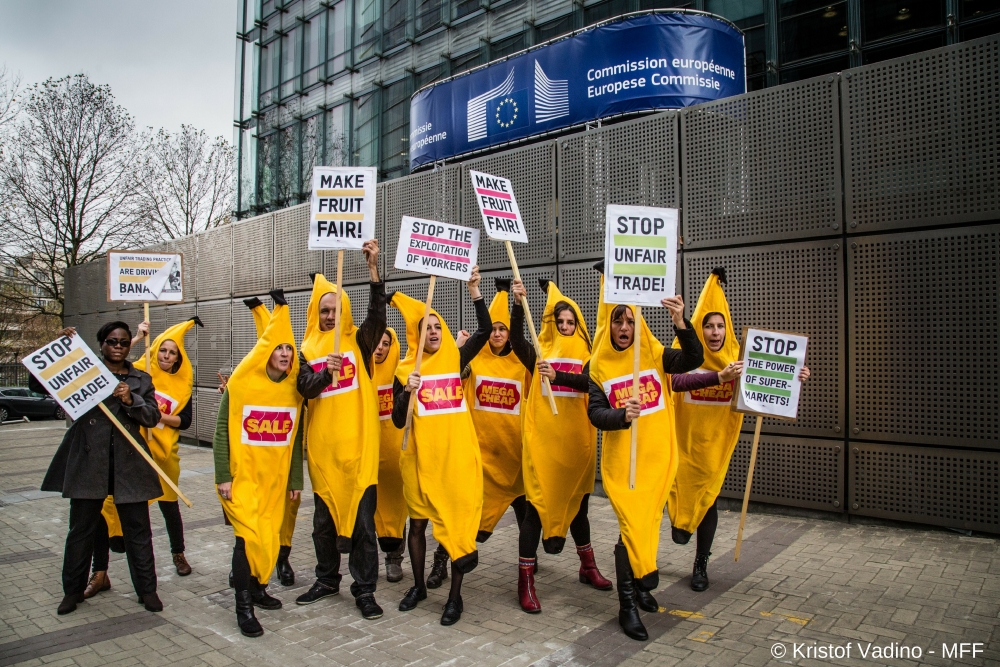EU strategy to harness globalisation should promote Fair Trade for All
2017-05-12

The European Commission launched on 10 May a reflection paper on harnessing globalization. Fair Trade Advocacy Office editorial by Sergi Corbalan.
EU strategy to harness globalization should promote Fair Trade for All
The European Commission launched on 10 May a reflection paper on harnessing globalization, the second of a series of papers on the future of Europe. The Commission´s think-piece identifies seven key trends shaping globalization, such as a growing “demand for more Fair Trade, sustainable and local products”.
European Commission’s Vice President Timmermans stated in the press conference "Europe must help rewrite the global rule book so that free trade becomes the fair trade. So that globalization becomes sustainable and works for all Europeans”.
Despite the encouraging press statement, the actual think-piece mainly puts forward free trade solutions to the negative impacts of globalization, with virtually no proposed change to current EU trade policy. Disappointingly, the think-piece appears to be even a step back from the current 2015 EU “Trade for All” strategy, which attaches a more prominent role in trading with values, responsible supply chains and the promotion of fair and ethical trade initiatives than any EU trade strategy before. The Commission´s reflection paper also seems to ignore the recommendations of its own EC internal think-tank report “Sustainability now!: a European vision for sustainability” of 20 July 2016, which states “Trade policy must contribute to reducing global inequalities, creating qualitatively different growth bringing more inclusive social benefits while staying within the ecological limits of our planet. This may take the form of more sustainability certification schemes, fair trade labels”.
European citizens are indeed world leaders in the consumption of Fair Trade products, but Fair Trade initiatives should not be merely put in the box of voluntary ethical consumption. The EU can´t let the market take care of ensuring fairness. The new global rulebook will not be fair for all if we continue tolerating companies making huge profits at the expense of unsustainable textile production in the Global South. It won´t be fair for all unless it requires mandatory due diligence of EU importers for fair supply chains. It won´t be fair for all unless we offer preferential market access for sustainable products. And it won´t be sustainable unless the EU internal policies promote a favorable tax regime for sustainable consumption and ensure all public procurement in Europe is sustainable by 2030.
We recognize this reflection paper is only the start of the process and we look forward to constructively contributing to the debate on the future of Europe to ensure that the EU becomes a world leader in ensuring Fair Trade for All.
Sergi Corbalán
Fair Trade Advocacy Office
Executive Director





















